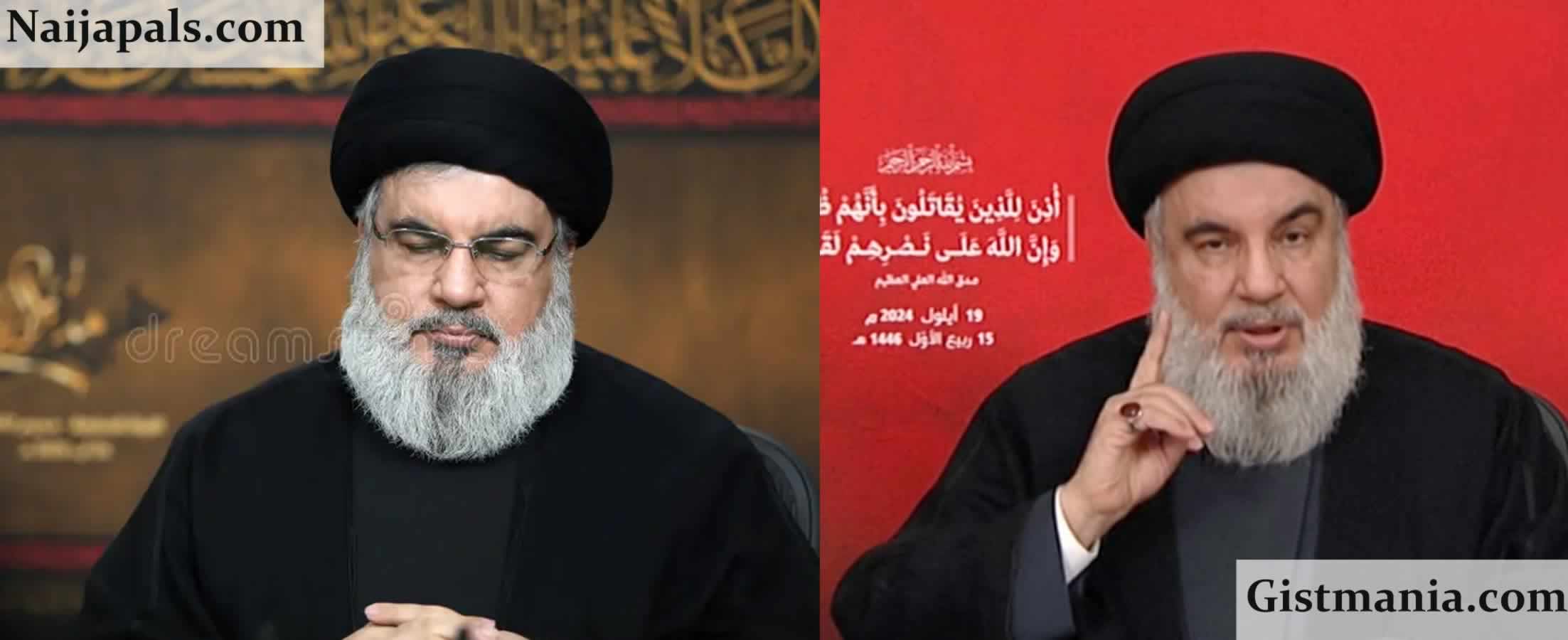
In a significant escalation of regional tensions, the Israeli Defense Forces (IDF) announced early Saturday morning, September 28, that Hassan Nasrallah, the leader of the militant group Hezbollah, has been killed in an airstrike targeting the group’s headquarters in Beirut.
The IDF released a statement asserting its commitment to combating terrorism, declaring, "The IDF will continue to harm anyone who promotes and engages in terrorism against the citizens of the State of Israel." The airstrike was carried out by Israeli fighter jets, guided by precise intelligence, targeting Hezbollah’s central command, which was reportedly located underground beneath a residential building in the Daha neighborhood of the Lebanese capital.
Hezbollah, a Shiite Muslim political party and armed faction, has long been a staunch opponent of Israel and receives significant financial backing from Iran, Israel's primary adversary. The group has been actively supporting Hamas since the outbreak of conflict between Israel and Palestine on October 7.
Nasrallah, who has maintained a low profile for years due to security concerns, has deep ties to Iran and played a crucial role in strengthening Hezbollah’s military capabilities, providing training to Hamas militants as well as to various militias in Yemen and Iraq.
Born in 1960 in Beirut, Nasrallah became involved with the Amal movement, a Shiite militia, during the Lebanese Civil War that erupted in 1975. He ascended to the leadership of Hezbollah in 1992 following the assassination of his predecessor in a helicopter attack.
As of this report, Hezbollah has not officially responded to the claims surrounding Nasrallah's death. The implications of this development are yet to be fully realized, as the region braces for potential repercussions.
| Posted: at | |




 TRENDING GISTS
TRENDING GISTS  I'm Building PDP, Not Tearing it Apart - Wike Addresses The Press (Video)
I'm Building PDP, Not Tearing it Apart - Wike Addresses The Press (Video) VIDEO: Man Caught While Waiting For a Minor he Had Solicited S£x From Online
VIDEO: Man Caught While Waiting For a Minor he Had Solicited S£x From Online Emotional Moment Femi Adebayo Presented His 2025 AMVCA Trophies to His Dad, Adebayo Salami
Emotional Moment Femi Adebayo Presented His 2025 AMVCA Trophies to His Dad, Adebayo Salami Rapper, Phyno Unveils His Daughter, Shares Adorable Video to Mark Her Second Birthday
Rapper, Phyno Unveils His Daughter, Shares Adorable Video to Mark Her Second Birthday Ex Madrid Player, Xabi Alonso Seals Managerial Move To Real Madrid As Ancelotti Bows Out
Ex Madrid Player, Xabi Alonso Seals Managerial Move To Real Madrid As Ancelotti Bows Out
 Retired Teacher, Mallam Kabiru Killed, Wife Abducted As Bandits Invade Zamfara School Quarters
Retired Teacher, Mallam Kabiru Killed, Wife Abducted As Bandits Invade Zamfara School Quarters Army Busts Gunrunning Syndicate in Plateau, Two Arrested With AK-47 (Photos)
Army Busts Gunrunning Syndicate in Plateau, Two Arrested With AK-47 (Photos) Ringside Rumble? Fans Hype Possible Boxing Showdown Between Small Doctor And Portable
Ringside Rumble? Fans Hype Possible Boxing Showdown Between Small Doctor And Portable